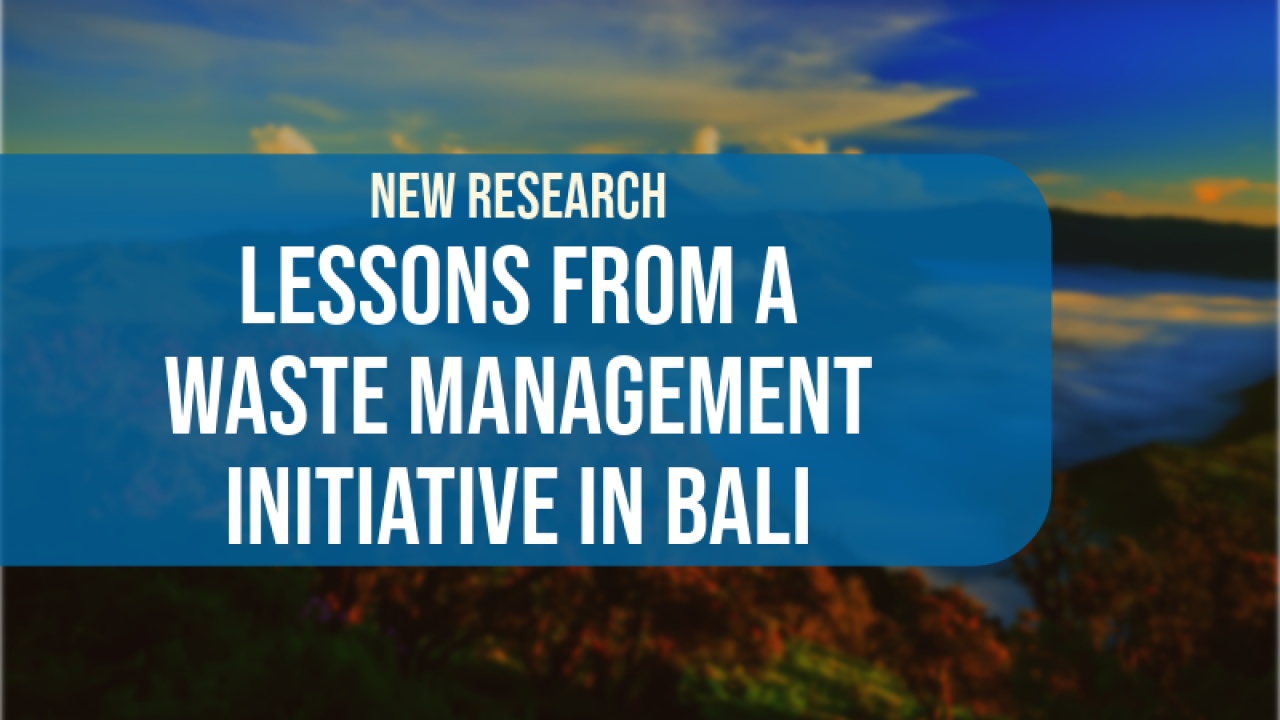March 06, 2024
Encouraging pro-environmental behavior among women groups in Bali

By Gregoria Arum Yudarwati, Universitas Atma Jaya Yogyakarta
There is a need to understand corporate sustainability communication from the perspective of women groups as agents of pro-environmental behavior and circular economy initiative.
My study contends that corporate sustainability communication should facilitate the communication process that promotes the ideas of equality and inclusion of the public who bring their identities, histories, stories, biases and imperfections, into the decision-making process.
With the support of the Page Center, fieldwork was conducted in Bali, Indonesia to explore women experiences and expectations toward waste bank initiatives, programs where community members separate their waste and deposit recyclables at designated "waste banks." What is saved is not money, but the domestic waste.
Seven focus group discussions involving women groups who organize waste bank were conducted. These discussions were supported by several in-depth interviews with company’s representatives, local leaders, managers of waste management facilities, and NGO/ facilitator representatives. This study discovered that women understand negative impacts of the waste to their livelihood and neighborhood, but have limited understanding about its impact to their future and planet.
They are not familiar with prominent environmental issues, such as climate change, global warming or loss biodiversity. Nevertheless, they are familiar with different types of domestic waste, not because of their impacts to the environment but because of their economic values. The findings also show that the economic motive and the spiritual belief have become their main drivers to participate in this waste management initiative.
Balinese have a strong belief in “Tri Hita Karana,” which rules balance and harmony with God, environment and other human being. This has urged them to constantly nurture their environment. The awareness and understanding about environmental problems have not become their initial drivers.
My study revealed the learning process experienced by women: observing, imitating what others do in their community, learning by doing which then becomes their habits. Upon research completion, my study proposes three implications toward corporate sustainability communication.
First, sustainability communication is a process to build public understanding about relationships between humans and their environment as well as create a critical awareness of the problems within this relationship, while also connect them to local social values and norms.
Accordingly, the process should not only rely on the scientific and corporate interests relating to environmental issues, but also needs to facilitate the exploration of public understanding and how they construct the concept about environmental issues. The corporate sustainability communication is about co-creation meaning process between corporation and the public.
Second, it is important to identify the “hot” button that can trigger the initiation toward pro-environmental behavior. This could be something that is close to their livelihood, and has tangible impacts to the individuals and/or public.
Finally, to change pro-environmental behavior, this study proposes social learning process as an alternative approach, especially for collectivist communities. This approach emphasizes the importance of observing, modelling, and imitating the behaviors, attitudes, as well as emotional reactions of others.
For further information on this study, please email Gregoria Arum Yudarwati, at arum.yudarwati@uajy.ac.id. This project was supported by a 2022 Page/Johnson Legacy Scholar Grant from the Arthur W. Page Center.
